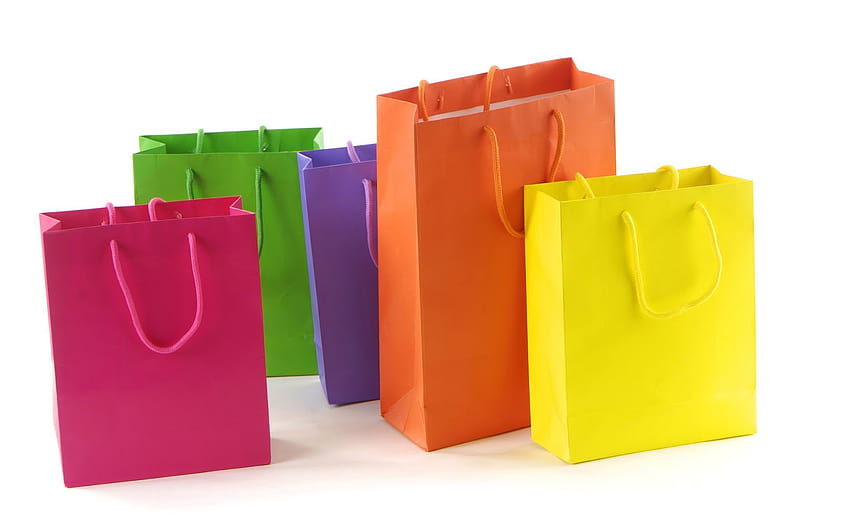Bagging the Planet: Rethinking Our Relationship with Plastic Shopping Bags
Bagging the Planet: Rethinking Our Relationship with Plastic Shopping Bags
Blog Article

In our everyday lives, plastic shopping bags have become a familiar sight. They are lightweight, convenient, and often offered for free at grocery stores, making them a popular choice for consumers. However, this convenience comes at a significant cost to our environment. Each year, millions of tons of plastic bags are discarded, contributing to pollution and threatening wildlife. As the world grapples with the consequences of plastic waste, it is crucial to rethink our relationship with these seemingly harmless items.
The ease of grabbing a plastic bag can overshadow its long-lasting impact, resulting in a culture of disposability. Shopping with plastic bags may feel effortless, but the hidden toll on our planet is profound. From overflowing landfills to oceanic debris, the ramifications of our plastic consumption are far-reaching. As we navigate this complex issue, it is essential to explore sustainable alternatives and cultivate a sense of responsibility towards the earth and future generations.
The Environmental Impact of Plastic Bags
Plastic shopping bags pose significant environmental challenges due to their widespread use and disposal. Each year, billions of these bags are consumed, contributing to the escalating problem of plastic waste. Many bags end up in landfills or, worse, in natural environments where they can take hundreds of years to decompose. During this time, they break down into smaller particles known as microplastics, which can contaminate soil and water sources, affecting ecosystems and wildlife.
The impact on marine life is especially alarming. A large portion of plastic bags finds its way into oceans, leading to tragic consequences for marine organisms. Sea turtles often mistake plastic bags for jellyfish, leading to ingestion, which can cause internal injuries or death. Additionally, marine birds and fish can become entangled in plastic debris, resulting in severe physical harm or reduced chances of survival. The accumulation of plastics in the oceans disrupts the food chain and threatens biodiversity.
Furthermore, the production of plastic bags is resource intensive. The manufacturing process relies heavily on fossil fuels, contributing to carbon emissions and climate change. Extraction and processing of oil not only deplete natural resources but also result in environmental pollution. As communities worldwide grapple with the consequences of plastic pollution, rethinking our reliance on these bags is essential for sustainable living and environmental conservation.
Alternatives to Plastic Shopping Bags
One of the most popular alternatives to plastic shopping bags is the reusable cloth bag. These bags are often made from materials like cotton or recycled plastics and can be used multiple times, significantly reducing waste. Cloth bags come in various sizes and styles, making them versatile for different shopping needs. Many stores now offer discounts for customers who bring their own bags, further encouraging the switch from single-use plastics.
Another option is the use of biodegradable bags, which are designed to break down more quickly than traditional plastic. These bags are typically made from materials such as cornstarch or other plant-based sources. Although they still require proper disposal to ensure they decompose effectively, biodegradable bags provide a temporary solution that can ease the transition away from plastic. They serve well for consumers looking for a guilt-free shopping experience while still needing a bag at checkout.
https://www.armopak.com
Lastly, some consumers are turning to basket-style solutions, which have been utilized for generations. Baskets made from woven materials, such as wicker or seagrass, offer a sturdy option for carrying groceries and other items. They are often reusable, stylish, and eliminate the need for any plastic altogether. By incorporating these traditional methods, shoppers can embrace an eco-friendlier lifestyle while enjoying the aesthetics and practicality that come with them.
Rethinking Consumer Behavior
The way consumers perceive and use plastic shopping bags is deeply ingrained in modern shopping habits. Many individuals view these bags as convenient, often failing to grasp the long-term implications of their widespread usage. To foster change, it is crucial to educate consumers about the environmental impact of plastic waste and encourage them to consider alternatives. By highlighting the true cost of convenience, including pollution and jeopardized marine life, consumers can reevaluate their choices.
Moreover, behavioral economics reveals the power of social influence in shaping consumer decisions. When communities adopt sustainable practices, such as using reusable bags, it creates a ripple effect, encouraging others to follow suit. Retailers can play a vital role in this transformation by promoting eco-friendly options and incentivizing the use of reusable bags through discounts or loyalty programs. Such initiatives can reshape the shopping experience, positioning sustainability as a desirable consumer trait rather than a burden.
Lastly, fostering a culture of responsibility can lead to lasting change. Encouraging conversations about plastic use within households, schools, and communities can solidify a collective commitment to reducing reliance on plastic shopping bags. As consumers become more mindful about their choices, they will contribute to a significant reduction in plastic consumption, paving the way for a healthier planet. Shifting the narrative from convenience to accountability is essential in rethinking consumer behavior around plastic shopping bags.
Report this page